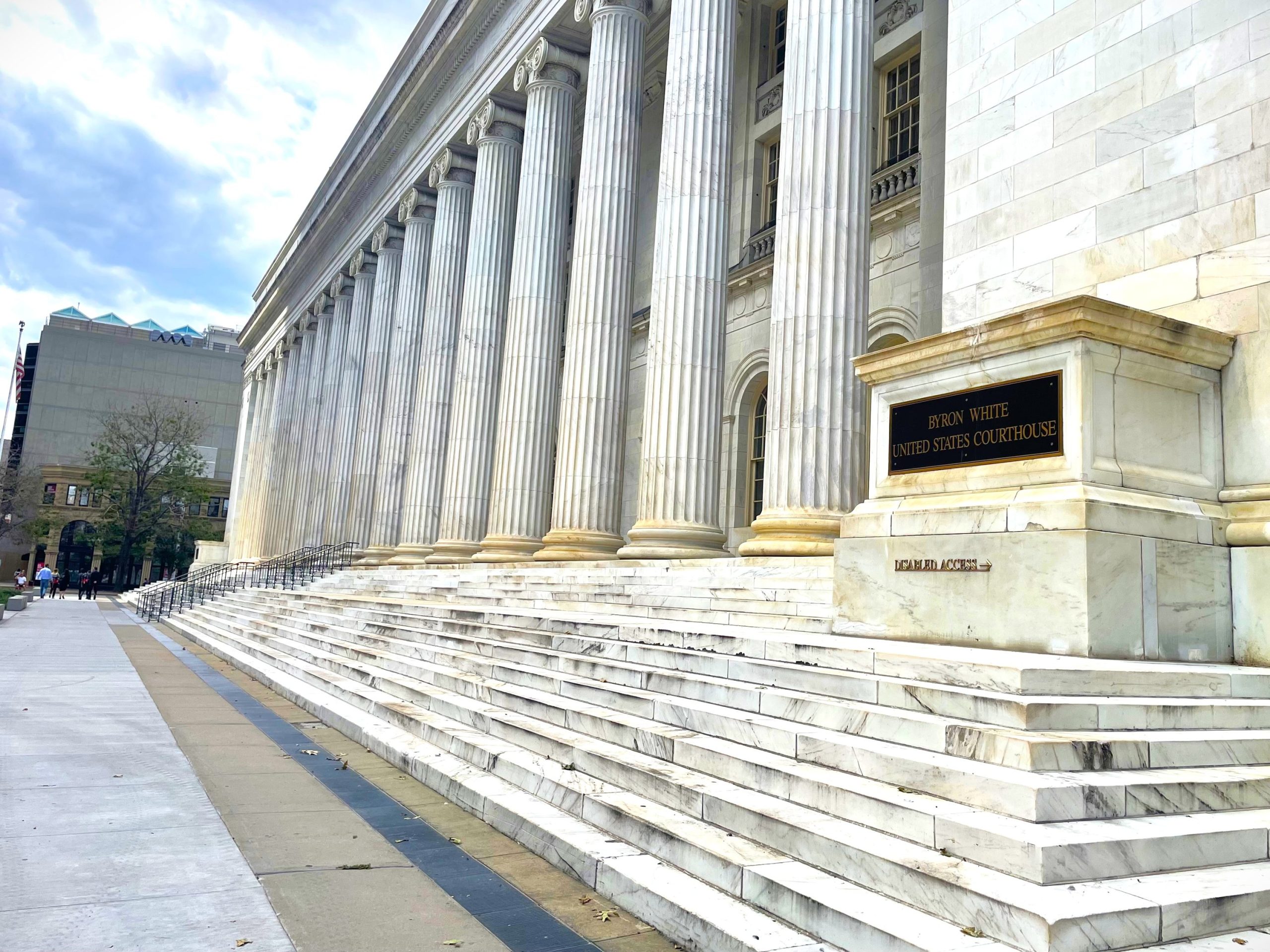
DENVER (CN) — Transgender teenagers asked the 10th Circuit on Wednesday to overturn a lower court’s order and block an Oklahoma law preventing them from accessing gender-affirming care recommended by their doctors and approved by their parents.
“One need only read the declaration from Brandon Boe’s parents to see how parents grapple with it, but ultimately it is the parents’ decision,” argued Omar Gonzalez-Pagan, an attorney with the Lambda Legal Defense and Education Fund, on behalf of the families. Boe is the pseudonym of one of the teens who brought the case.
Oklahoma Governor Kevin Stitt, a Republican, signed SB613 on May 1, 2023, banning access to gender-affirming care for minors whose gender identity differs from their biological sex. Doctors who violate the law face felony charges and discipline from the state licensing board.
The law was one of 84 considered by state legislatures last year limiting access to medical care and other aspects of society for transgender people.
The treatment is prescribed specifically to transgender people suffering from anxiety and depression triggered by gender dysphoria.
Five anonymous transgender children and teens between 12 and 17 who thrived under the treatment sued the state, along with their parents and a medical provider.
U.S. District Judge John Heil III, a Federalist Society associate appointed by Trump to Oklahoma federal court, denied an injunction to the youth in October, prompting an appeal.
“This is a sex-based classification on its face,” Gonzalez-Pagan argued. “The state can regulate medical care, but they must justify that sex-based classification. This is a situation where puberty blockers can be provided to any group except these.”
U.S. Circuit Judge Harris Hartz grappled with the idea that a law could discriminate on sex if it treated young men and women equally. Hartz, a George W. Bush appointee, pulled guidance from the U.S. Supreme Court’s 2022 decision in Dobbs v. Jackson Women’s Health Organization which reversed decades long precedent protecting a woman’s access to an abortion.
“There’s a statement in the recent decision of Dobbs which I think you just wrote off without addressing,” Hartz said. “The undergoing of a procedure only one sex can undergo doesn’t automatically trigger heightened scrutiny unless the regulation is a mere pretext, etcetera, and that’s what we’re talking about here — you can’t remove the testicles from a woman.”
Gonzales-Pagan clarified that the issue was mainly of accessing hormonal treatment, not surgery.
U.S. Circuit Judge Gregory Phillips, appointed by Obama, followed up on the question of Dobbs’ guidance.
“Under each law, no minor can obtain hormones or puberty blockers to transition to another sex,” Phillips said. “It’s an across-the-board regulation — it’s not saying only boys or only girls can get it, so help me to understand.”
Gonzales-Pagan explained the Oklahoma law discriminates between cis-gender and transgender youth, treating someone born male who identifies as male and is seeking testosterone treatment differently from someone born female who identifies as male and is also seeking testosterone treatment.
“Here no procedure is banned for everybody. Here it is not banning the provision of hormones for everybody, here it is banning that care solely for a particular group: when a minor has a gender inconsistent with their birth sex,” Gonzales-Pagan explained. “Here gender transition and the ability to transition to another gender is a proxy.”
In several instances, Hartz grappled with the weight of the decision in the court’s hands.
“This is a real difficult issue, because you have kids who are suffering greatly and you don’t want to do permanent harm to them, and each side thinks it is preventing permanent harm to the child,” Hartz said.
Turning to Oklahoma state attorney Garry Gaskins II, Hartz asked why parents shouldn’t be trusted to make the decision for their children.
“The Legislature doesn’t think minors can make these decisions, but there are many decisions that are made of minors that have that effect — religion and schooling — so why isn’t the parent allowed to exercise that authority?” Hartz asked.
Gaskins urged the court to respect the democratic process of the state Legislature.
“Federal courts must resist the temptation to substitute their views for the will of the Legislature,” Gaskins said. “Sound government usually benefits from more rather than less debate, from more rather than less input, from more fair-minded polices than less.”
Dozens of states submitted amicus briefs both in support of and against the law. New York actor Elliot Page led an amicus brief alongside dozens of other transgender professionals and scholars in defense of the treatment. The American Academy of Pediatrics, along with dozens of other medical organizations, also issued a brief in support of the treatment.
To date, the Sixth Circuit and the 11th Circuit have sided with states laws banning gender-affirming care for minors, while the Ninth Circuit recently decided to take up the issue en banc.
U.S. Circuit Judge Joel Carson, appointed by Trump, rounded out the panel but did not speak during the hearing.
The hearing was held in a packed courtroom at the Byron White U.S. Courthouse in downtown Denver and broadcast to 76 viewers via YouTube. The court did not indicate when or how it would decide the case.



